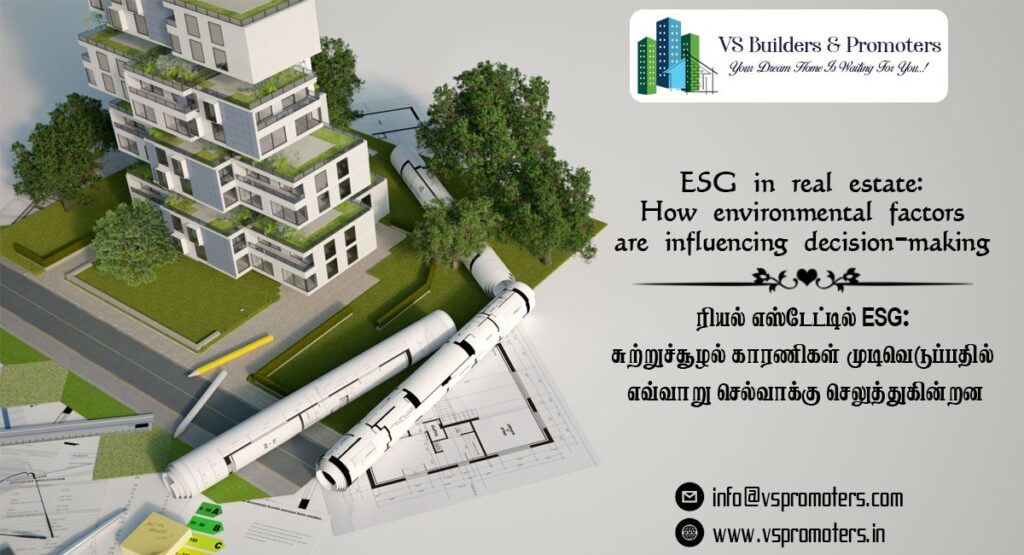
ESG means, Environmental, Social, and Governance, in which its considerations are increasingly influencing decision-making within the real estate industry. Environmental factors play a crucial role in shaping sustainable and responsible practices in real estate development, operations, and investment.
Environmental Factors:
Energy Efficiency: Real estate developers and investors are placing greater emphasis on energy-efficient buildings, incorporating technologies like solar panels, energy-efficient lighting, and smart building systems to reduce energy consumption and carbon emissions.
Green Building Standards: Building certifications like LEED (Leadership in Energy and Environmental Design) and BREEAM (Building Research Establishment Environmental Assessment Method) drive sustainable construction practices, leading to the creation of environmentally friendly and resource-efficient buildings.
Resource Management: Sustainable water usage and waste management strategies are gaining prominence. Rainwater harvesting, wastewater recycling, and waste reduction techniques contribute to minimizing environmental impact.
Climate Resilience: With climate change concerns, real estate projects are considering location-specific climate resilience measures to safeguard against extreme weather events and rising sea levels.
Social Factors:
Community Engagement: Real estate projects are now more inclusive and responsive to the needs of the local community, aiming to create spaces that enhance the quality of life for residents.
Affordable Housing: Developers are focusing on integrating affordable housing components within real estate projects to address housing inequality and contribute to social well-being.
Building designs that prioritize occupants’ health and well-being, such as improved indoor air quality and green spaces. And have become important considerations.
Governance Factors:
Transparency: Transparent reporting of environmental and social performance demonstrates commitment to sustainability and accountability to stakeholders.
Ethical Practices: Ethical business practices, including fair labor standards, anti-corruption measures, and adherence to regulations, contribute to positive governance.
Risk Management: Incorporating ESG factors into decision-making helps identify and mitigate risks related to environmental liabilities, regulatory compliance, and reputational damage.
Impact on Decision-Making:
ESG considerations influence real estate decision-making in multiple ways:
Investment Attraction: ESG-focused properties often attract investors seeking long-term value, improved financial performance, and risk mitigation.
Tenants are increasingly valuing environmentally responsible and socially conscious properties, which can lead to higher occupancy rates and rental premiums.
Regulatory Compliance: Adhering to ESG standards ensures compliance with evolving environmental regulations, reducing legal and financial risks.
Investors, regulators, and communities are pressuring the industry to adopt sustainable practices. That, makes ESG integration essential for maintaining reputation and relationships.
In conclusion, ESG factors are reshaping the real estate landscape by driving environmentally sustainable, socially responsible, and ethically sound decision-making. Integrating ESG considerations not only aligns with global sustainability goals but also enhances financial performance, risk management, and stakeholder trust within the real estate sector.
For More Details:
Contact: +91 7094434780
Mail: info@vspromoters.com
Visit: www.vspromoters.in

